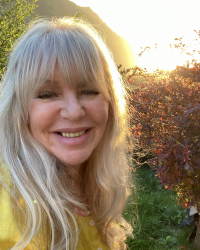Counselling for loneliness
Loneliness has been always been part of the human experience and there will be times in all of our lives, when we will all feel alone in some way. However, loneliness is quite different from being alone which may be by choice and something we are comfortable with. Choosing to be alone and having our own space can be healthy and empowering, but loneliness can lead us to feel isolated and often deeply and profoundly unhappy - feeling we have nowhere to turn and no one to turn to. Very often, it is a place of intense anguish.
It may be that we are having difficulty talking to family or friends or that we have difficulty connecting with others meaningfully. There are reasons for certain types of loneliness - life changes that occur naturally present us with new environments and people and are examples of transitory loneliness. However, this short article is more about isolation because of prolonged loneliness.
Whatever the reason, loneliness is an intensely painful experience and can damage our self esteem and our overall health and wellbeing, leading to a sense of prolonged and deep sadness. We may feel there is absolutely no one we can relate to, and this is where counselling can be helpful because the therapeutic relationship is one where we can really be ourselves, knowing we will not be judged.
Counselling is where we can connect and explore, at our own pace, what the root of what our loneliness really means for us as individuals; where it comes from and how we can move on to make connections in our world, for as human beings we are social and with rare exceptions, actually need a feeling of ‘connectedness’ to be truly happy.
The counselling relationship is not a friendship but it is a powerful tool to discover what has caused us to feel unconnected - we can talk openly about how we truly feel and look at how we came to our loneliness, so that we can understand, heal and move on with our lives. It is a journey of self discovery and one that can be truly life changing.
Often, we can feel lonely even though we are in relationships and this can cause pain and feelings of isolation - we may have people around us who we know but who seem somehow ‘cut off’ and we can feel that we are almost living our lives in a ‘bubble’ - all of which can be further accentuated in today’s society by social media, where we may feel we are the only one who does not appear to be having a lively social life; our unhappiness can be intensified further by simply being in the world and observing the interactions of people around us that appear to be easy and comfortable with others. We can almost feel that being lonely is something to be ashamed of, a taboo almost, in the world of instant interactions. Loneliness does not mean we are 'bad people' - it is too easy to judge ourselves and think that we are in some way 'to blame' almost, because loneliness erodes our self esteem, sometimes leading us to think ourselves uninteresting or 'flawed' in some way.
The dictionary tells is that loneliness is ‘Sadness because one has no friends or company.’ As I said at the beginning of this article - loneliness is an inevitable part of our experience as human beings and transitory loneliness can actually be healthy because it encourages us to connect with others.
However, loneliness that endures, that causes us to feel isolated - often silently experiencing deep pain, is a sign that we need to talk about our feelings in a safe place with someone who we can truly open up to about our feelings and move on to a more connected and happy place.

Find a therapist dealing with Anxiety
All therapists are verified professionals






